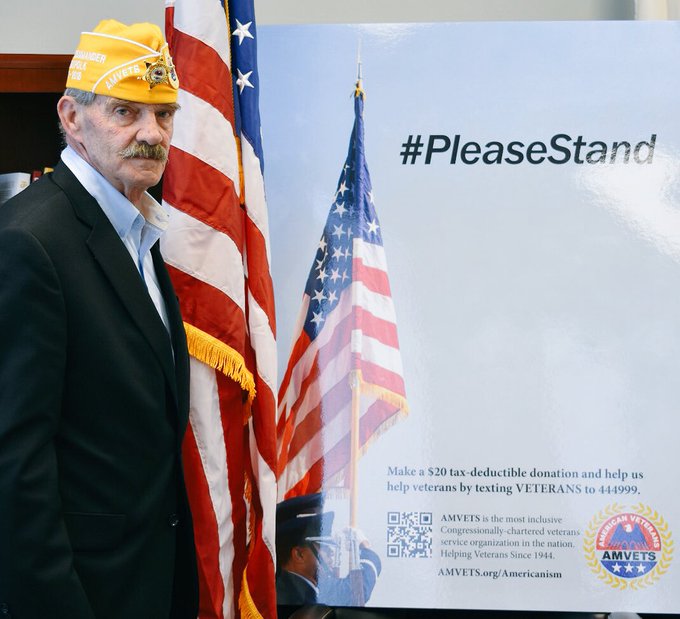NFL CENSORS US VETERANS’ #PLEASESTAND SUPER BOWL COMMERCIAL
Largest veterans service group in America stiff-armed
America’s leading veterans service group claims the NFL censored their Super Bowl commercial because it criticized the league’s kneeling protests.
The NFL originally approached AMVETS to run an ad during the most watched game of the year.
However, the league rejected the commercial because it used #PleaseStand and showed American service members saluting the flag.
The group’s National Commander Marion Polk highlighted the league’s hypocrisy in claiming the kneeling protests are free speech, while simultaneously denying the free speech of veterans who actually fought for that right.
“Freedom of speech works both ways. We respect the rights of those who choose to protest, as these rights are precisely what our members have fought – and in many cases – died for, but imposing corporate censorship to deny that same right to those veterans who have secured it for us all is reprehensible and totally beyond the pale,” Polk declared.
The move could be surprising to some fans who think the NFL is pro-military, but Polk explains the league has used veterans as props for photo-ops in the past.
“Veterans are good for more than just military aircraft flyovers, photo opportunities during halftime, or props to sell camouflage-style NFL apparel, although the NFL’s stance on not allowing the veterans’ unfiltered voice to be heard says otherwise.”
NFL Vice President of Communications Brian McCarthy released a statement saying the Super Bowl has “never been a place for advertising that could be considered by some as a political statement.”
In spite of this claim, last year’s Super Bowl game featured twocontroversial commercials, both attacking President Trump’s immigration policies.
McCarthy’s message is another example of hypocrisy from the league after they allowed dozens of players to make “political statements” by kneeling during the National Anthem, which sparked the AMVET advertisement in the first place.
Fans have shown their disapproval with the NFL by boycotting games in person and on television, causing the league to lose 33% of its market.


No comments:
Post a Comment
Thanks for commenting. Your comments are needed for helping to improve the discussion.